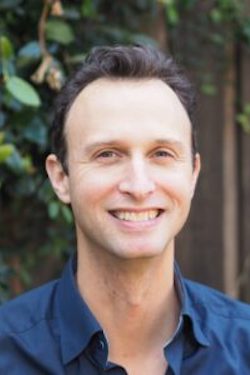Chair’s Welcome
 The Department of Jewish Studies is the home of cutting-edge scholarship and teaching on Jewish experiences and cultural expressions from antiquity to the present. Students of all backgrounds will find in Jewish Studies at Vanderbilt a wide array of material and approaches, presented by leading scholars from history, anthropology, sociology, religious studies, philosophy, and literature.
The Department of Jewish Studies is the home of cutting-edge scholarship and teaching on Jewish experiences and cultural expressions from antiquity to the present. Students of all backgrounds will find in Jewish Studies at Vanderbilt a wide array of material and approaches, presented by leading scholars from history, anthropology, sociology, religious studies, philosophy, and literature.
Our subject is the past and present of a diverse group whose history of dispersal across broad swaths of territory inspired the coinage of the word diaspora. As a result, our courses also touch on many regions of the world, from Europe and the Middle East to the United States and Latin America. We do more than cover these areas—we connect them and relate the lives of Jews to those of their neighbors. Explore our faculty’s work and you will see how we draw some of these connections in our scholarship: tracing the involvement of Ottoman Jews in the global trade of Middle Eastern goods; analyzing what organized trips for young Jews from the US to Israel look like on the ground; exploring how Yiddish and Hebrew authors in Odessa, Jerusalem, Berlin, Tel Aviv, and New York became innovators as authors of modernist prose; using the Talmud as inspiration to answer current questions of sexual ethics; and explaining how Jewish efforts in Europe, the United States, and Israel to reckon with the Holocaust affected other victims of Nazi genocide.
Our courses reflect this diversity of themes, and they emphasize creative connections and incisive thinking about culture, society, and politics. Whether you sign up for a course on traditional Rabbinic texts, American Jewish literature, Jewish social movements, the Holocaust, Jewish-Muslim relations, or the history of Zionism you will learn about them within the larger contexts in which they unfolded. You can read more about our courses and our Major, Minor, the Master of Arts (in Religion), and Graduate Certificate courses of study on our website.
Undergraduates who choose Jewish Studies as a major or minor use this training for a diversity of careers, ranging from the world of Jewish education and community management to work with NGOs; others take their skills to pursue careers in law, business, or politics. Whatever your future might hold, you will discover that all of us—students, faculty, alumni—are part of a community of lifelong learners committed to understanding Jewish experiences in their global context.
Ari Joskowicz
Chair of the Department of Jewish Studies
Director of Graduate Studies
